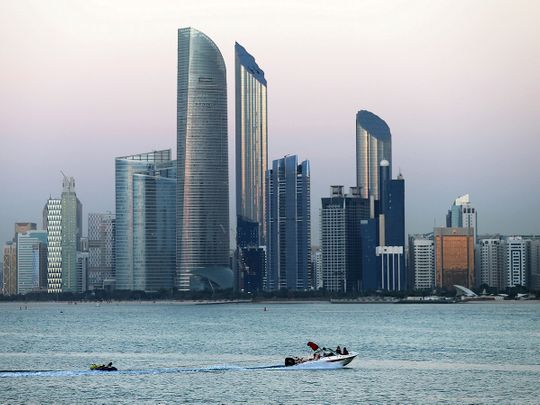
The UAE is once again proving its resilience, fundamental economic strength and credit worthiness in the face of a global pandemic and the huge drop in oil prices.
Going by the recent rating actions by leading credit rating agencies such as the Moody’s and Standard & Poor’s, the GCC countries in general have fared better among the emerging market universe with the UAE and Kuwait rated the most creditworthy among emerging market sovereigns.
The exceptional strength of the Abu Dhabi government’s net asset position provides a buffer to counteract the effect of oil price swings and COVID-19 on economic growth, government revenue, and the external account, as well as the effect of increasing geopolitical uncertainty in the Gulf region
Sovereign credit ratings have become increasingly important as countries around the world tap the international bond markets. These credit ratings — issued to sovereign entities like national governments — take into account political risk, regulatory risk and other unique factors to determine the likelihood of a default.
As sovereign ratings reflect the credit worthiness of governments, it will have a bearing on the cost and availability of credit to that government.
In addition, as sovereign’s credit strength is the ultimate national benchmark, it will reflect the credit worthiness of local governments, government related entities (GREs) and corporates within the national jurisdiction.
The UAE’s sovereign credit strength largely reflects the financial fiscal strength of the Emirate of Abu Dhabi. Although individual emirates such as Sharjah and Ras Al Khaimah have different credit ratings, the sovereign rating of the UAE draws strength from Abu Dhabi’s fiscal strength.
While Moody’s has rated the UAE and Abu Dhabi Aa2 with stable outlook, Standard & Poor’s has retained Abu Dhabi’s credit rating at AA/Stable/A-1+ with stable outlook even after considering the impact of COVID-19 on the economy.
The exceptional strength of the Abu Dhabi government’s net asset position provides a buffer to counteract the effect of oil price swings and COVID-19 on economic growth, government revenue, and the external account, as well as the effect of increasing geopolitical uncertainty in the Gulf region and the potential crystallisation of contingent liabilities of GREs.
Abu Dhabi derives about half of its real GDP and about 90 per cent of government revenue from the hydrocarbon sector. This includes oil taxes and royalties, plus dividends from state-owned oil producer, refiner, and distributor Abu Dhabi National Oil Co. (ADNOC).
The sharp drop in oil prices, cuts to oil production under the recent Opec++ reduced activity due to the COVID-19 pandemic will exert significant pressure on the economy.
However to act against the oil price volatility the government has accumulated one of the largest net asset positions. These assets are likely to cushion Abu Dhabi and help the UAE bounce back with positive GDP growth in 2021.








